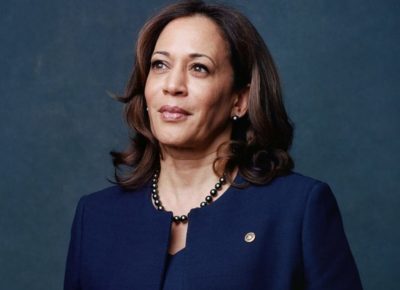Vice President Kamala Harris made a significant move in the 2024 presidential race by delivering a speech focused on economic growth and middle-class prosperity. Speaking in Pittsburgh, Pennsylvania, a crucial battleground state, Kamala Harris outlined a comprehensive plan aimed at revitalizing domestic industries and supporting working families. The event, hosted by The Economic Club of Pittsburgh, provided Kamala Harris with a platform to distinguish her economic vision from her Republican rival, Donald Trump.
Positioning herself as a capitalist with a “pragmatic approach,”Kamala Harris emphasized the need for targeted investments in artificial intelligence, aerospace, and energy sectors. She also proposed $100 billion in tax breaks and financial incentives to help first-time homebuyers, young families, and the elderly. Kamala Harris’s vision, which she termed an “opportunity economy,” includes bold initiatives to increase union apprenticeships and reform federal job requirements by eliminating college degree prerequisites.
A Capitalist Response to Republican Attacks
In a direct response to Republican claims that she supports “communist” policies, Kamala Harris underscored her identity as a capitalist. Her speech was framed as a rebuttal to Donald Trump’s economic proposals, which include a 15% tax rate on Made-in-America products. While Trump has criticized Harris and the Biden administration for their tax policies, Kamala Harris doubled down on the need for higher taxes on large corporations and the wealthiest Americans.
Harris promised to reform the country’s outdated permitting process to accelerate infrastructure development and reiterated her commitment to economic fairness. “I promise you I will be pragmatic in my approach,” Harris stated, contrasting her economic strategy with Trump’s. She argued that Trump’s policies favor the wealthy, while her proposals are designed to boost the middle Kamala Harris also criticized Trump’s track record with tariffs, describing his approach as reckless and ineffective.
Battleground State Campaigning and Competing Economic Visions
Both Kamala Harris and Donald Trump are focused on key battleground states, recognizing that the economy is a decisive issue for voters in the upcoming Kamala Harris’s campaign in Pennsylvania and Trump’s visit to North Carolina highlight their competing visions. While Trump has touted a “manufacturing renaissance” centered around a 15% tax rate for U.S.-made products, Kamala Harris has focused on creating opportunities for middle-class growth.
Harris’s speech came shortly after Trump defended his tariff policies in Mint Hill, North Carolina, claiming they are crucial to protecting American jobs. Trump also reminded his supporters that his presidency saw the largest corporate tax cut in U.S. history, from 35% to 21%. Both candidates are vying to prove that their economic agendas will lead to greater prosperity, but Harris has opened a slight lead in national polls following the recent debate.
Kamala Harris vs. Donald Trump: A Battle for Economic Credibility
In a sit-down interview with MSNBC, Kamala Harris took aim at Trump’s economic credibility, accusing him of favoring the rich and neglecting the middle Harris pushed back on Trump’s claims that she lied about her experience working at McDonald’s as a student, using the anecdote to highlight the struggles of working families in America. She argued that Trump’s economic policies, including his tax cuts for billionaires, have only widened the gap between the rich and poor.
Harris concluded her interview by reaffirming her belief that a strong middle class is the foundation of a robust economy. She criticized Trump’s populist rhetoric, suggesting that his policies fail to address the needs of everyday Americans. “My perspective on the economy is when you grow the middle class, America’s economy is stronger,” Kamala Harris said, positioning herself as the candidate who can deliver economic fairness and sustainable growth.














